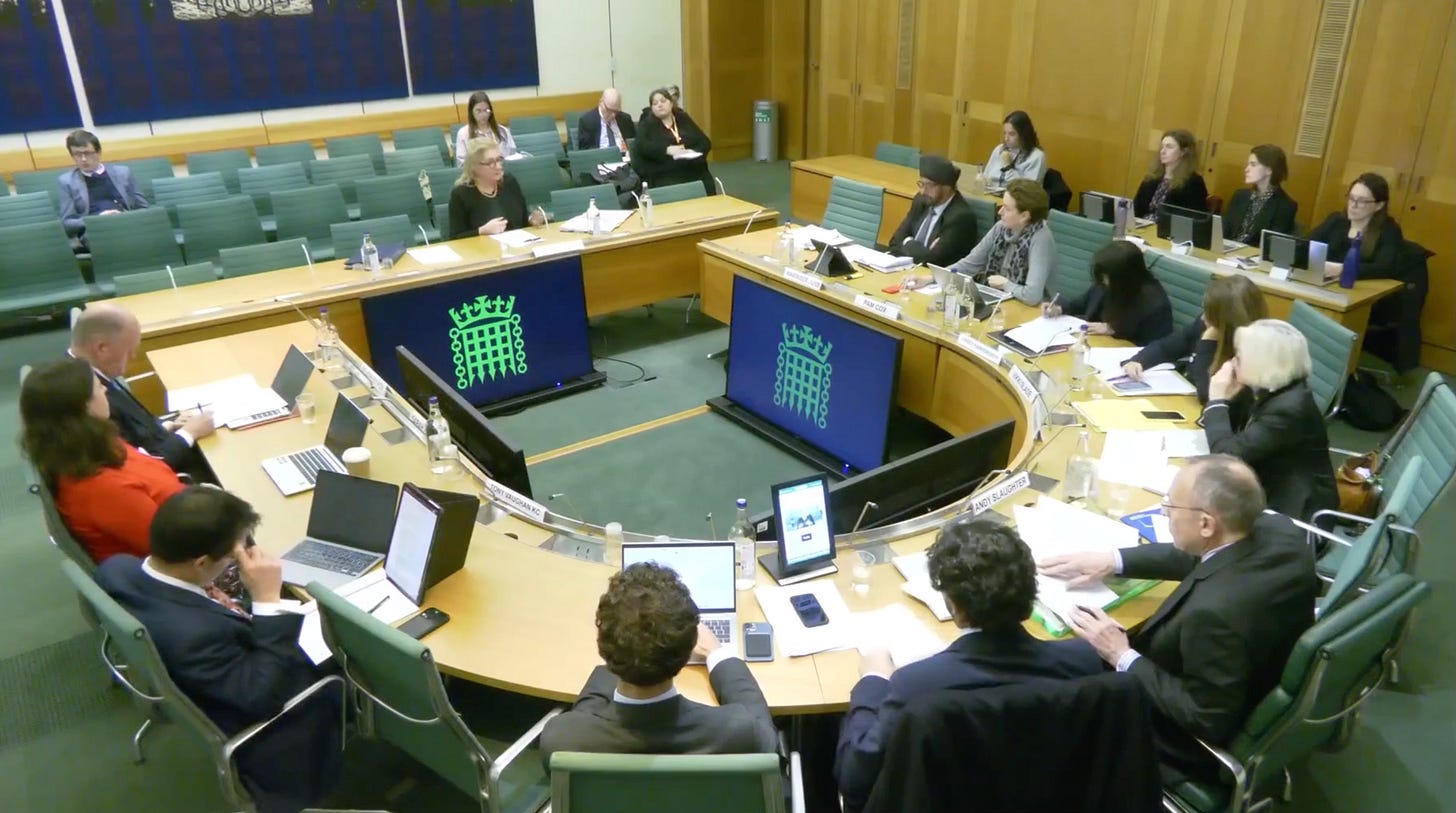Think first
Attacking judges has consequences, lady chief justice tells MPs
Politicians are under a heavy responsibility to avoid inaccurate criticism of judges and their decisions, the lady chief justice of England and Wales told MPs yesterday.
In her annual appearance before the House of Commons justice committee, Baroness Carr of Walton-on-the-Hill said there had been a number of occasions when things had gone badly wrong.
Calling into question a judge’s competence and integrity could have four adverse consequences, she explained:
Threat to the rule of law and the democratic process — if legal proceedings were presented inaccurately, politicians and members of the public might be taking decisions on, for example, leaving the human rights convention on a “completely flawed premise”.
Security concerns — public debates were taking place “in a manner that led to immediate security threats to my judges”, Carr said.
Recruitment and retention challenges — 70% of immigration and asylum judges sit part-time. “If, when you go and sit in that jurisdiction, your judgments at risk of ridicule — or inaccurate reporting on a flawed premise — why would you?”
Public confidence — trust in the judiciary remains high but it cannot be taken for granted. “Every incident that undermines that trust needs to be fully justified and throughly examined,” the lady chief justice told MPs.
Carr disclosed that the judiciary had been given no more than 24 hours’ notice of the home secretary’s plan to abolish the immigration and asylum chamber of the first-tier tribunal and replace it with a system of independent adjudicators. The lady chief justice said she understood that there would be a route of appeal from the adjudicators to the upper tribunal, which currently hears appeals immigration and asylum appeals from the first-tier tribunal.
The 87 full-time and 250 part-time judges sitting in that jurisdiction had been given little or no information about what was to happen to them, she added.
Challenges and achievements
Carr began her evidence session with a rapid-fire but detailed overview of the judiciary’s challenges and achievements since her last appearance before the committee a year ago. You can watch an extract by clicking the ► symbol below:
And here’s my summary of the main points Carr made in that extract:
We have resourcing problems; we can expect significant and challenging changes to the criminal justice system; there are to be policy changes in the way immigration and asylum cases are handled; there are constitutional developments affecting the independence of the Sentencing Council; and court delays are increasing because receipts are outstripping disposals.
In these difficult and challenging times, judges are getting on with the job. They deserve recognition and gratitude. There is real and tangible energy across the judiciary and a commitment to bringing about change.
Every judicial office-holder in England and Wales now has access to the Microsoft Copilot chat tool. England and Wales is one of the first jurisdictions in the world to have achieved that. We are working with HM Courts and Tribunals Service to build a cross-jurisdictional bespoke judicial AI tool. It will handle transcription, interpretation, bundle summarisation, analysis, chronologies and search capacity. We are working on a prompt library.
We have been making good progress on AI-generated transcripts. They can lighten the load of a judge in court because they don’t need to take notes at such a ferocious rate on their computers. We have piloting these in the immigration and asylum chamber since January with great success. I hope that it will be extended to other courts. It is a very positive development that holds massive potential for the future. But releasing a transcript is not as straightforward as you might think.
Leaked reports of the justice secretary’s plans to limit jury trials began to emerge just as Carr was arriving at the House of Commons. She made no comment on them to MPs.
I plan to analyse them when they are published.
A transcript of Carr’s remarks has been published by the judiciary.



No one ever reports on the judicial lack of accountability. That bias and making legal mistakes are seen as acceptable is in my opinion beyond comprehension. Being accountable doesn’t interfere with independence. Having a robust complaints procedure would ensure that errors would not be perpetuated and retraining would be viewed as a positive.
Let us not forget Alison Raeside’s words after the Sara Sharif case
‘I’ve never had an appraisal. Imagine that. You don’t get any feedback. No one tells you if you are any good’. I rest my case..
So let .e get this straight.... woth regard to immigration there will be no court because we can't get the staff. We can't get the staff because judges are abused by the current immigration system.
So no court =immigrants legal or not being welcomed in with no inspection as to the validity (or otherwise) of their claim
Am I the only person who sees a problem in this?